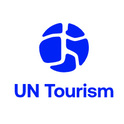UNWTO presents the 3rd UNWTO World Forum on Gastronomy Tourism
The World Tourism Organization Headquarters in Madrid, Spain, hosted today the presentation of the 3rdUNWTO World Forum on Gastronomy Tourism. The event will be held in Donostia-San Sebastian, Spain, on 8-9 May 2017.
The Forum is organized by UNWTO in collaboration with UNWTO Affiliate Member, the Basque Culinary Center, as part of the activities of the UNWTO Gastronomy Network. The third edition will be dedicated to the links between gastronomy tourism and sustainability in the framework of the 2017 International Year of Sustainable Tourism for Development.
The first edition of the Forum took place in Donostia–San Sebastian, the second edition in 2016 in Lima, Peru, and in 2017 the Forum will return to Donostia–San Sebastian, where it is to be held every two years.
The presentation was attended by UNWTO Secretary-General, Taleb Rifai, the State Secretary of Tourism of Spain, Matilde Pastora Asian González; the Vice Councilor of Commerce and Tourism of the Basque Government, Isabel Muela; the Director of Tourism of the County Council of Gipuzcoa, Maite Cruzado and the Councillor of Donostia-San Sebastián, Ernesto Gasco and the Director General of the Basque Culinary Center, Joxe Mari Aizega.
"The relation between food and culture has become a major motivation for travelers, but also a great catalyst of sustainable tourism as gastronomy tourism brings out the most authentic features of each destination" said UNWTO Secretary-General, Taleb Rifai at the presentation of the Forum.
"Gastronomy tourism has an immense potential and is a priority for Spain's tourism promotional strategy due to its increasing relevance, particularly in rural destinations. In 2015, 8.4 million international tourists, representing 12.3% of the total, engaged in some activity related to gastronomy" said Matilde Pastora Asian González, Secretary of State for Tourism of Spain.
The event will bring together leading experts in gastronomy tourism to discuss latest trends and to share case studies and innovative products. Topics will include the so-called 'farm to table' processes, sustainable product development, successful public policies and the benefits of gastronomy tourism.
"Gastronomy tourism is a flourishing phenomenon and our objective is to create a space to share, to reflect, to analyze and to work to improve tourism in this area" said Joxe Mari Aizega, Director General of the Basque Culinary Center.
The panel presentations will be complemented by working sessions giving all participants the opportunity to interact and share ideas. Parallel to the official programme of the Forum, a wide range of events will be conducted at a number of gastronomic hubs showcasing the rich variety of products offered.
On the occasion of the Forum, UNWTO will release the second volume of the Global Report on Gastronomy Tourism. The publication analyses current trends in gastronomy tourism and the methodologies involved in product development.
About UN Tourism
The World Tourism Organization (UN Tourism), a United Nations specialised agency, is the leading international organisation with the decisive and central role in promoting the development of responsible, sustainable and universally accessible tourism. It serves as a global forum for tourism policy issues and a practical source of tourism know-how. Its membership includes 166 countries, 6 territories, 2 permanent observers and over 500 Affiliate Members from the private sector.
Media enquires: [email protected]
Rut Gómez Sobrino
Principal Media Officer
(+34) 91 567 81 60
UN Tourism
